- Home
- D. H. Lawrence
Selected Stories Page 3
Selected Stories Read online
Page 3
Magnetic forces of attraction and repulsion swing between the three protagonists. The newcomer in ‘The Blind Man’ is an outsider not because of his class, but because of his sexuality. Many of Lawrence’s readers would have caught the coded description of Bertie:
He was a bachelor … He lived in beautiful rooms overlooking the river, guarded by a faithful Scottish man-servant. And he had his friends among the fair sex – not lovers, friends. So long as he could avoid any danger of courtship or marriage, he adored a few good women with constant and unfailing homage … if they seemed to encroach on him, he withdrew and detested them. (212:29–36)
But Bertie is also an insider. He and Isabel are kin, they have been friends from childhood, they are also both Scottish while Maurice is English: ‘He disliked the Scotch accent in Bertie’s speech, and the slight response it found on Isabel’s tongue’ (210:5–7).
Lastly, Isabel and Bertie Reid can both see. ‘The Blind Man’ lacks the dramatic peaks of ‘The Prussian Officer’, but it is one of Lawrence’s and perhaps English literature’s most accomplished stories. The final quiet realisation of the isolation that can exist even within our deepest connections is as powerful as any violent act.
Lawrence’s response to and respect for the natural world appears over and again in his work, but there also seems to be a recognition that one can slip too far into nature. Man is man, and the natural world is a thing apart. We have left whatever state of nature we might once have occupied. The workers in ‘Love Among the Haystacks’ appear to have a synergy with nature, but the boys are eager to return to a more civilised berth.
‘The Man Who Loved Islands’ is perhaps partly an expression of the Nietzschean concept of striving ‘to become master over all space’,15 that is, his small island. But in the end it is the island that has dominance over the man. Nature becomes increasingly predatory, snow falls ‘panther-like’ and thunder mutters ‘unsatisfied’.
Lawrence projects a world that will endure whether men and women exist or not. In ‘Sun’ Juliet makes a lover of the sun, bathing naked in its rays, but she will still have to submit to her husband’s sexual demands. No matter how much freedom Juliet gains, her next child will be fathered by this soft, white man because she is tied to him by society if not by her nature.
Lawrence is a writer of wonderful descriptive powers. His dialogue rings true and is revealing of his characters, though he is not averse to ‘telling’ rather than ‘showing’. In a lesser writer the effect might be irritating, but Lawrence can hold the tale. Sometimes the effect is one of a parable, told by a wryly humorous narrator. ‘There was a man who loved islands. He was born on one, but it didn’t suit him …’ (286:4–5).
Britain was an island that couldn’t hold Lawrence. He died in France in 1930 aged forty-four after a battle with tuberculosis. At the time of his death Lawrence was considered on a level with a pornographer. His was not a name to be spoken lightly in polite society. Obituaries, with the notable exception of E. M. Forster’s, were almost universally unkind. A few devotees, such as his friends and fellow writers Catherine Carswell, Aldous Huxley and, later, the critic F. R. Leavis, kept Lawrence’s flame alive. But ironically it was the Chatterley trial of 1960 that brought Lawrence’s work to a wider audience. His new popularity was partly based on the same, supposedly scandalous subject matter that had condemned him in an earlier age, and which now contributed towards a new climate of sexual openness.
The link between Lawrence’s fiction and sex persists in the modern imagination. In November 2005 on a trip to Toronto an advertisement jumped out at me from the pages of the free listings paper: ‘CHATTERLEY Gorgeous 45 yr. old with Exotic Lingerie, Gents 35+ Preferred’.16 This lingering association between his work and the more seedy side of sexuality would not have thrilled Lawrence, who was heard to mutter after a particularly damning review, ‘Nobody likes being called a cesspool.’17
Lawrence has always been a writer who has engendered strong responses; he has been both celebrated and scorned. A recent Guardian profile described his status as ‘currently out of vogue; his work seen as period pieces’. It remains to be seen whether the twenty-first century will allow the critical pendulum to swing in his favour.
Louise Welsh
Love Among the Haystacks
I.
The two large fields lay on a hillside facing south. Being newly cleared of hay, they were golden green, and they shone almost blindingly in the sunlight. Across the hill, half way up, ran a high hedge, that flung its black shadow finely across the molten glow of the sward. The stack was being built just above the hedge. It was of great size, massive, but so silvery and delicately bright in tone that it seemed not to have weight. It rose dishevelled and radiant among the steady, golden-green glare of the field. A little further back was another, finished stack.
The empty wagon was just passing through the gap in the hedge. From the far-off corner of the bottom field, where the sward was still striped grey with winrows, the loaded wagon launched forward, to climb the hill to the stack. The white dots of the hay-makers showed distinctly among the hay.
The two brothers were having a moment’s rest, waiting for the load to come up. They stood wiping their brows with their arms, sighing from the heat and the labor of placing the last load. The stack they rode was high, lifting them up above the hedge tops, and very broad, a great slightly hollowed vessel into which the sunlight poured, in which the hot sweet scent of hay was suffocating. Small and inefficacious the brothers looked, half submerged in the loose, great trough, lifted high up as if on an altar reared to the sun.
Maurice, the younger brother, was a handsome young fellow of twenty one, careless and debonnair, and full of vigour. His grey eyes, as he taunted his brother, were bright and baffled with a strong emotion. His swarthy face had the same peculiar smile, expectant and glad and nervous, of a young man roused for the first time in passion.
“Tha sees,” he said, as he leaned on the pommel of his fork, “tha thowt as tha’d done me one, didna ter?” He smiled as he spoke, then fell again into his pleasant torment of musing.
“I thought nowt—tha knows so much,” retorted Geoffrey, with the touch of a sneer. His brother had the better of him. Geoffrey was a very heavy, hulking fellow, a year older than Maurice. His blue eyes were unsteady, they glanced away quickly; his mouth was morbidly sensitive. One felt him wince away, through the whole of his great body. His inflamed self-consciousness was a disease in him.
“Ah but though, I know tha did,” mocked Maurice. “Tha went slinkin’ off—” Geoffrey winced convulsively—“thinking as that wor the last night as any of us ’ud ha’e ter stop here, an’ so tha’d leave me to sleep out, though it wor thy turn——”
He smiled to himself, thinking of the result of Geoffrey’s ruse.
“I didna go slinkin’ off, neither,” retorted Geoffrey, in his heavy, clumsy manner, wincing at the phrase. “Didna my feyther send me to fetch some coal—”
“Oh yes, oh yes—we know all about it. But tha sees what tha missed, my lad.”
Maurice, chuckling, threw himself on his back in the bed of hay. There was absolutely nothing in his world, then, except the shallow ramparts of the stack, and the blazing sky. He clenched his fists tight, threw his arms across his face, and braced his muscles again. He was evidently very much moved, so acutely that it was hardly pleasant, though he still smiled. Geoffrey, standing behind him, could just see his red mouth, with the young moustache like black fur, curling back and showing the teeth in a smile. The elder brother leaned his chin on the pommel of his fork, looking out across the country.
Far away was the faint blue heap of Nottingham. Between, the country lay under a haze of heat, with here and there a flag of colliery smoke waving. But near at hand, at the foot of the hill, across the deep-hedged highroad, was only the silence of the old church and the castle farm, among their trees. The large view only made Geoffrey more sick. He looked away, to the wagons crossing the field below him, the
empty cart like a big insect moving down hill, the load coming up, rocking like a ship, the brown head of the horse ducking, the brown knees lifted and planted strenuously. Geoffrey wished it would be quick.
“Tha didna think—”
Geoffrey started, coiled within himself, and looked down at the handsome lips moving in speech below the brown arms of his brother.
“Tha didna think ’er ’d be theer wi’ me—or tha wouldna ha’ left me to it,” Maurice said, ending with a little laugh of excited memory. Geoffrey flushed with hate, and had an impulse to set his foot on that moving, taunting mouth, which was there below him. There was silence for a time, then, in a peculiar tone of delight, Maurice’s voice came again, spelling out the words, as it were:
“Ich bin klein, mein Herz ist rein
Ist niemand d’rin als Christ allein.”
Maurice chuckled, then, convulsed at a twinge of recollection, keen as pain, he twisted over, pressed himself into the hay.
“Can thee thy prayers in German,” came his muffled voice.
“I non want,” growled Geoffrey.
Maurice chuckled. His face was quite hidden, and in the dark he was going over again his last night’s experiences.
“What about kissing ’er under th’ ear, Sorry,” he said, in a curious, uneasy tone. He writhed, still startled and inflamed by his first contact with love.
Geoffrey’s heart swelled within him, and things went dark. He could not see the landscape.
“An’ there’s just a nice two-handful of her bosom,” came the low, provocative tones of Maurice, who seemed to be talking to himself.
The two brothers were both fiercely shy of women, and until this hay harvest, the whole feminine sex had been represented by their mother, in presence of any other women they were dumb louts. Moreover, brought up by a proud mother, a stranger in the country, they held the common girls as beneath them, because beneath their mother, who spoke pure English, and was very quiet. Loud-mouthed and broad tongued, the common girls were. So the two young men had grown up virgin but tormented.
Now again Maurice had the start of Geoffrey, and the elder brother was deeply mortified. There was a danger of his sinking into a morbid state, from sheer lack of living, lack of interest. The foreign governess at the vicarage, whose garden lay beside the top field, had talked to the lads through the hedge, and had fascinated them. There was a great elder bush, with its broad creamy flowers crumbling onto the garden path, and into the field. Geoffrey never smelled elder-flower without starting and wincing, thinking of the strange foreign voice that had so startled him as he mowed out with the scythe in the hedge bottom. A baby had run through the gap, and the Fräulein, calling in German, had come brushing down the flowers in pursuit. She had started so on seeing a man standing there in the shade, that for a moment she could not move: and then she had blundered onto the rake which was lying by his side. Geoffrey, forgetting she was a woman when he saw her pitch forward, had picked her up carefully, asking: “Have you hurt you?”
Then she had broken into a laugh, and answered in German, showing him her arms, and knitting her brows. She was nettled rather badly.
“You want a dock leaf,” he said.
She frowned in a puzzled fashion.
“A do-ock leaf?” she repeated.
He had rubbed her arms with the green leaf.
And now, she had taken to Maurice. She had seemed to prefer himself at first. Now she had sat with Maurice in the moonlight, and had let him kiss her. Geoffrey sullenly suffered, making no fight.
Unconsciously, he was looking at the vicarage garden. There she was, in a golden brown dress. He took off his hat, and held up his right hand in greeting to her. She, a small golden figure, waved her hand negligently from among the potato rows. He remained arrested in the same posture, his hat in his left hand, his right arm upraised, thinking. He could tell by the negligence of her greeting that she was waiting for Maurice. What did she think of himself? Why wouldn’t she have him?
Hearing the voice of the wagoner leading the load, Maurice rose. Geoffrey still stood in the same way, but his face was sullen, and his upraised hand was slack with brooding. Maurice faced up-hill. His eyes lit up and he laughed. Geoffrey dropped his own arm, watching.
“Lad!” chuckled Maurice. “I non knowed ’er wor there.” He waved his hand clumsily. In these matters Geoffrey did better. The elder brother watched the girl. She ran to the end of the path, behind the bushes, so that she was screened from the house. Then she waved her handkerchief wildly. Maurice did not notice the manœuvre. There was the cry of a child. The girl’s figure vanished, re-appeared holding a white childish bundle, and came down the path. There she put down her charge, sped up-hill to a great ash-tree, climbed quickly to a large horizontal bar that formed the fence there, and, standing poised, blew kisses with both her hands, in a foreign fashion that excited the brothers. Maurice laughed aloud, as he waved his red handkerchief.
“Well, what’s the danger?” shouted a mocking voice from below. Maurice collapsed, blushing furiously.
“Nowt!” he called.
There was a hearty laugh from below.
The load rode up, sheered with a hiss against the stack, then sank back upon the scotches. The brothers ploughed across the mass of hay, taking the forks. Presently a big, burly man, red and glistening, climbed to the top of the load. Then he turned round, scrutinised the hillside from under his shaggy brows. He caught sight of the girl under the ash-tree.
“Oh that’s who it is,” he laughed. “I thought it was some such bird, but I couldn’t see her.”
The father laughed in a hearty, chaffing way, then began to teem the load. Geoffrey, on the stack above, received his great forkfuls, and swung them over to Maurice, who took them, placed them, building the stack. In the intense sunlight, the three worked in silence, knit together in a brief passion of work. The father stirred slowly for a moment, getting the hay from under his feet. Geoffrey waited, the blue tines of his fork glittering in expectation: the mass rose, his fork swung beneath it, there was a light clash of blades, then the hay was swept onto the stack, caught by Maurice, who placed it judiciously. One after another, the shoulders of the three men bowed and braced themselves. All wore light blue, bleached shirts, that stuck close to their backs. The father moved mechanically, his thick, rounded shoulders bending and lifting dully; he worked monotonously. Geoffrey flung away his strength. His massive shoulders swept and flung the hay extravagantly.
“Dost want to knock me ower?” asked Maurice angrily. He had to brace himself against the impact. The three men worked intensely, as if some will urged them. Maurice was light and swift at the work, but he had to use his judgment. Also, when he had to place the hay along the far ends, he had some distance to carry it. So he was too slow for Geoffrey. Ordinarily, the elder would have placed the hay as far as possible where his brother wanted it. Now, however, he pitched his forkfuls into the middle of the stack. Maurice strode swiftly and handsomely across the bed, but the work was too much for him. The other two men, clenched in their receive and deliver, kept up a high pitch of labor. Geoffrey still flung the hay at random. Maurice was perspiring heavily with heat and exertion, and was getting worried. Now and again, Geoffrey wiped his arm across his brow, mechanically, like an animal. Then he glanced with satisfaction at Maurice’s moiled condition, and caught the next forkful.
“Wheer dost think thou’rt hollin’ it, fool?” panted Maurice, as his brother flung a forkful out of reach.
“Wheer I’n a mind,” answered Geoffrey.
Maurice toiled on, now very angry. He felt the sweat trickling down his body: drops fell into his long black lashes, blinding him, so that he had to stop and angrily dash his eyes clear. The veins stood out in his swarthy neck. He felt he would burst, or drop, if the work did not soon slacken off. He heard his father’s fork dully scrape the cart-bottom.
“There, the last,” the father panted. Geoffrey tossed the last light lot at random, took off his hat, an
d, steaming in the sunshine as he wiped himself, stood complacently watching Maurice struggle with clearing the bed.
“Don’t you think you’ve got your bottom corner a bit far out,” came the father’s voice from below. “You’d better be drawing in now, hadn’t you.”
“I thought you said next load,” Maurice called, sulkily.
“Ay! All right. But isn’t this bottom corner—?”
Maurice, impatient, took no notice.
Geoffrey strode over the stack, and stuck his fork in the offending corner.
“What—here …?” he bawled in his great voice.
“Ay—isn’t it a bit loose?” came the irritating voice.
Geoffrey pushed his fork in the jutting corner, and, leaning his weight on the handle, shoved. He thought it shook. He thrust again with all his power. The mass swayed.
“What art up to, tha fool!” cried Maurice, in a high voice.
“Mind who tha ’rt callin’ a fool,” said Geoffrey, and he prepared to push again. Maurice sprang across, elbowed his brother aside. On the yielding, swaying bed of hay, Geoffrey lost his foot hold, and fell grovelling. Maurice tried the corner.
“It’s solid enough,” he shouted angrily.
“Ay—all right,” came the conciliatory voice of the father—“you do get a bit of rest now there’s such a long way to cart it,” he added reflectively.

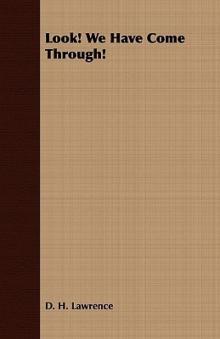 Look! We Have Come Through!
Look! We Have Come Through!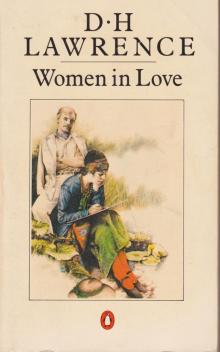 Women in Love
Women in Love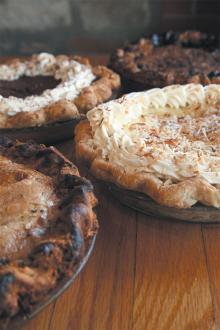 The Ladybird
The Ladybird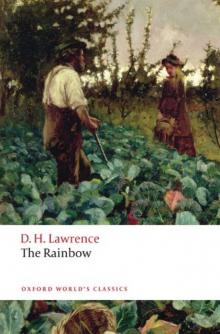 The Rainbow
The Rainbow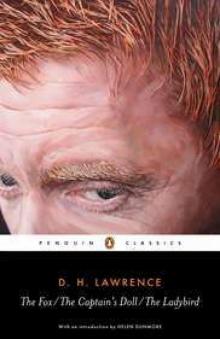 The Captain's Dol
The Captain's Dol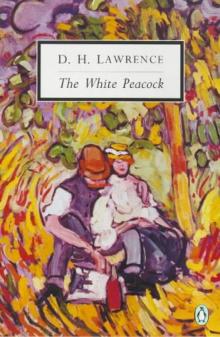 The White Peacock
The White Peacock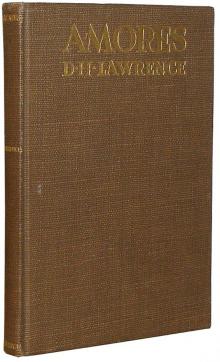 Amores
Amores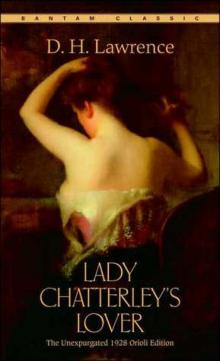 Lady Chatterley's Lover
Lady Chatterley's Lover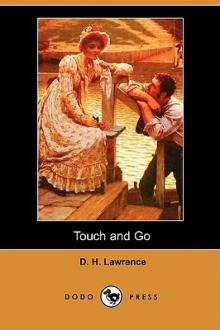 Touch and Go
Touch and Go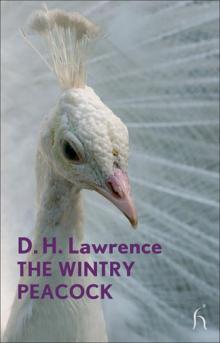 The Wintry Peacock
The Wintry Peacock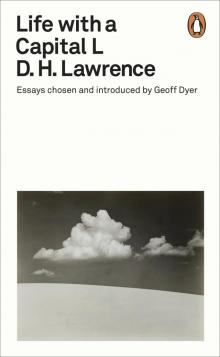 Life with a Capital L
Life with a Capital L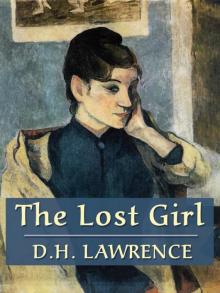 The Lost Girl
The Lost Girl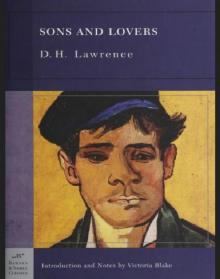 Sons and Lovers
Sons and Lovers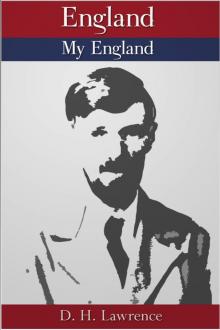 England, My England
England, My England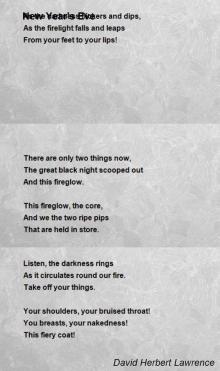 New Poems
New Poems Twilight in Italy
Twilight in Italy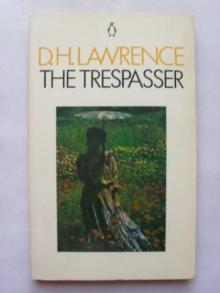 The Trespasser
The Trespasser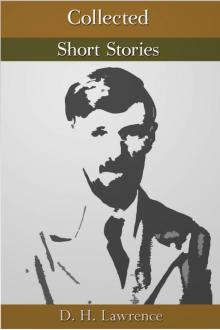 The Collected Short Stories
The Collected Short Stories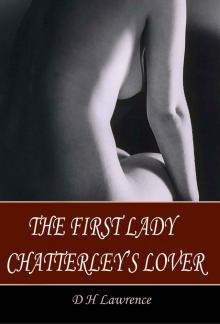 The First Lady Chatterley's Lover
The First Lady Chatterley's Lover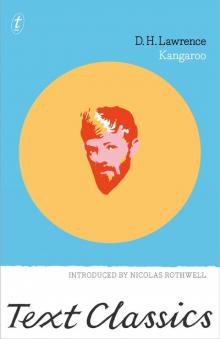 Kangaroo
Kangaroo Bay
Bay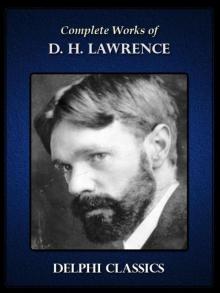 Complete Works of D.H. Lawrence
Complete Works of D.H. Lawrence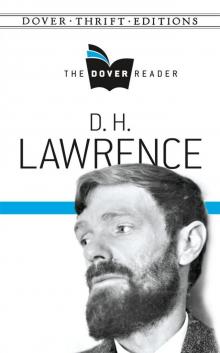 D H Lawrence- The Dover Reader
D H Lawrence- The Dover Reader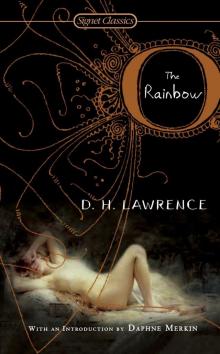 The Rainbow (100th Anniversary ed.)
The Rainbow (100th Anniversary ed.)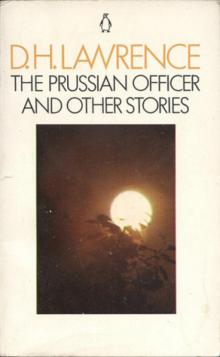 The Prussian Officer
The Prussian Officer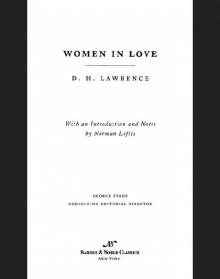 Women in Love (Barnes & Noble Classics Series)
Women in Love (Barnes & Noble Classics Series)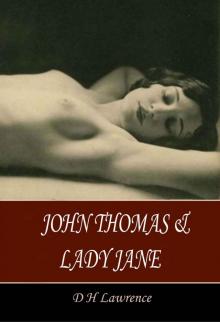 John Thomas and Lady Jane
John Thomas and Lady Jane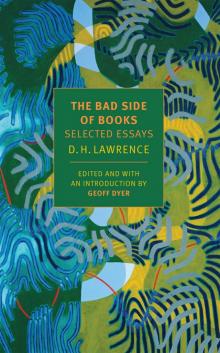 The Bad Side of Books
The Bad Side of Books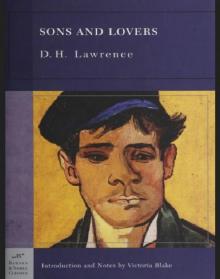 Sons and Lovers (Barnes & Noble Classics Series)
Sons and Lovers (Barnes & Noble Classics Series) Selected Stories
Selected Stories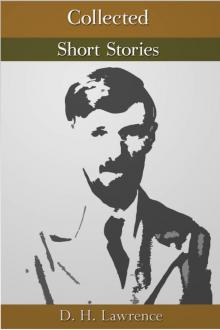 Collected Short Stories
Collected Short Stories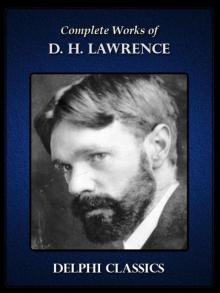 Complete Works of D.H. Lawrence (Illustrated)
Complete Works of D.H. Lawrence (Illustrated)